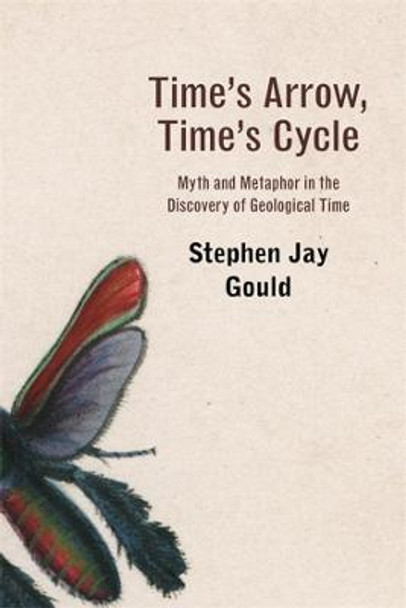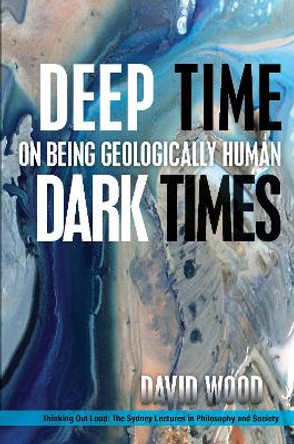Description
Rarely has a scholar attained such popular acclaim merely by doing what he does best and enjoys most. But such is Stephen Jay Gould's command of paleontology and evolutionary theory, and his gift for brilliant explication, that he has brought dust and dead bones to life, and developed an immense following for the seeming arcana of this field.
In Time's Arrow, Time's Cycle his subject is nothing less than geology's signal contribution to human thought-the discovery of "deep time," the vastness of earth's history, a history so ancient that we can comprehend it only as metaphor. He follows a single thread through three documents that mark the transition in our thinking from thousands to billions of years: Thomas Burnet's four-volume Sacred Theory of the Earth (1680-1690), James Hutton's Theory of the Earth (1795), and Charles Lyell's three-volume Principles of Geology (1830-1833).
Gould's major theme is the role of metaphor in the formulation and testing of scientific theories-in this case the insight provided by the oldest traditional dichotomy of Judeo-Christian thought: the directionality of time's arrow or the immanence of time's cycle. Gould follows these metaphors through these three great documents and shows how their influence, more than the empirical observation of rocks in the field, provoked the supposed discovery of deep time by Hutton and Lyell. Gould breaks through the traditional "cardboard" history of geological textbooks (the progressive march to truth inspired by more and better observations) by showing that Burnet, the villain of conventional accounts, was a rationalist (not a theologically driven miracle-monger) whose rich reconstruction of earth history emphasized the need for both time's arrow (narrative history) and time's cycle (immanent laws), while Hutton and Lyell, our traditional heroes, denied the richness of history by their exclusive focus upon time's arrow.
About the Author
Stephen Jay Gould was Alexander Agassiz Professor of Zoology at Harvard University and Vincent Astor Visiting Professor of Biology at New York University. A MacArthur Prize Fellow, he received innumerable honors and awards and wrote many books, including Ontogeny and Phylogeny and Time's Arrow, Time's Cycle (both from Harvard).
Reviews
The blasphemous and dwarfing revelation of 'deep time' forms the underlying drama of [this book]... In the monthly essays with which Gould has been amusing and edifying the readers of Natural History magazine for some fifteen years, he now and then shows a surprisingly fond acquaintance with the debunked and forgotten theories that litter the history of science: the present book, an expanded version of lectures given at Hebrew University in Jerusalem, considers three early British geologists-Thomas Brunet (1635-1715), James Hutton (1726-1797) and Charles Lyell (1797-1875)-who he feels have been misrepresented in the contemporary textbook version of geology's progress... Gould's lucid animated style, rarely slowed by even a touch of the ponderous, leads us deftly through the labyrinth of faded debates and perceptions... Gould, with a passion that approaches the lyrical, argues for a retrospective tolerance in science and against fashions that would make heroes and villains of men equally committed to the cause of truth and equally immersed in the metaphors and presumptions of their culture and time. -- John Updike * New Yorker *
This new work arises from Gould's delivery of the first series of Harvard-Jerusalem lectures presented at Hebrew University in April 1985. It is a highly individualistic document (Gould admits it to be 'a quest for personal understanding') and sometimes discursive (the book opens within the works of Sigmund Freud and closes outside the south front of the Cathedral of our Lady of Chartres), but it is always highly readable... Vastly entertaining and stimulating... Gould's subject here is geological time; he is concerned with aspects of the discovery of what John McPhee has appropriately termed 'deep time'... Underlying the entire book, however, lurks yet another and still deeper theme which should commend the work to a readership far wider than historians of ideas and of science. Gould both explicitly and implicitly demonstrates that science is a creation of human minds which are ever feeling the influence of pressures far removed from those natural phenomena that are laid out before the scientist's gaze. -- Gordon L. Herries Davies * Nature *
In [this book], Gould has turned to the history of geology, a field very close to his main concerns as a paleontologist. He offers a revisionist historical account of the discovery of geological time. If anyone suspects that Gould has at last written a book on a rather dry historical question, I should emphasize that he has hit upon a rich subject and has written a highly perceptive and fascinating book. Furthermore, his latest volume offers his readers a valuable insight into his wider intellectual vision, providing them with a literary blueprint for a number of the basic concerns that unite his many essays and books. To understand Gould one should read his new book. -- Frank J. Sulloway * New York Times Book Review *
Gould provides a fascinating, informally written excursion into the ways we conceptualize the past. He explores a central dichotomy between time's arrow (a unilinear Newtonian succession of unique events) and time's cycle (the recursive patterns that reappear in a world that remains fundamentally unchanged)... With its accessible style and its range of subjects, the book will be read by the same wide audience that has enjoyed Gould's earlier collections of essays... [The book] carries an enthusiasm, intelligence, and sense of purpose that render it a worthy follower to Gould's earlier work. Entertaining, sometimes annoying, highly personal, but never dull, this is the shortest of Gould's books, but also his most adventurous and experimental. -- J. A. Secord * Times Higher Education Supplement *
Gould's unabashed enthusiasm transforms his material. Every page pulses with his own excitement at seizing a subject so personally satisfying to him... This slim book, so plainly the product of one man's love for his subject, did not 'have' to be written-but leaves us grateful that it was. -- Robert Kanigel * Los Angeles Herald-Examiner *
Gould, geologist, paleontologist, and zoologist, is one of those relatively rare men of science who has gained a deep insight into the nature of his science and who has also developed a sense of history that is uncommon among scientists... Time's Arrow, Time's Cycle ought to be on the required reading list of every geologist and every student of the science. -- Dwight E. Mayo * American Scientist *
Geological time, its enormousness and humankind's place in it, is the great intellectual contribution of geology. In his latest book, Stephen Jay Gould shows us how its discovery embraced both time's cycle and time's arrow, and how, because these metaphors went unrecognized, we misinterpret geologic discoveries. Gould's style will be familiar to his readers-the historical snippets, the dichotomies, the odd and unusual, the common, the startling, and the contrary are all here. -- Jere H. Lipps * New Scientist *
In his painstaking yet engaging manner, Gould examines three central documents in the evolution of our notions about geological time. These works have been connected wrongly, Gould finds, in an arrowlike progression of their own, from religious notions of Earth's creation as God's fast work to empirically based theories of slow, steady changes... Gould's chosen task is significant nonetheless-setting the record of that discovery arrow-straight. He's done that in his unusual book with his usual charm and erudition. -- Don Lessem * Smithsonian *
What you read in textbooks and what your teachers told you is really wrong, Gould expounds. All this is a lot of fun, and there is such history and philosophy to intellectually chew on in this book... As we have come to expect from Gould, this book is interesting and clear. -- Eugenie C. Scott * American Journal of Physical Anthropology *
Book Information
ISBN 9780674891999
Author Stephen Jay Gould
Format Paperback
Page Count 240
Imprint Harvard University Press
Publisher Harvard University Press
Weight(grams) 336g










